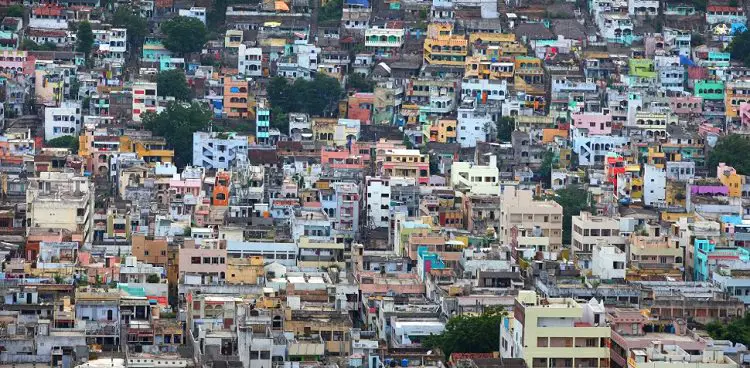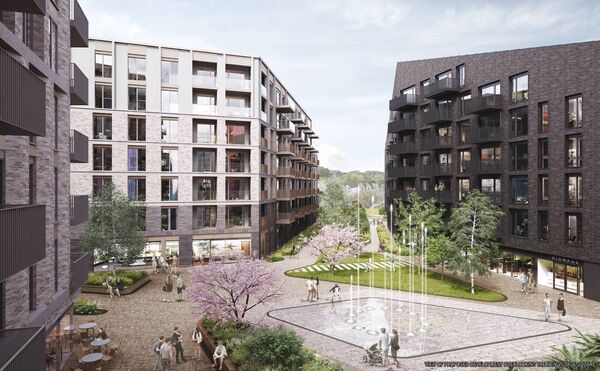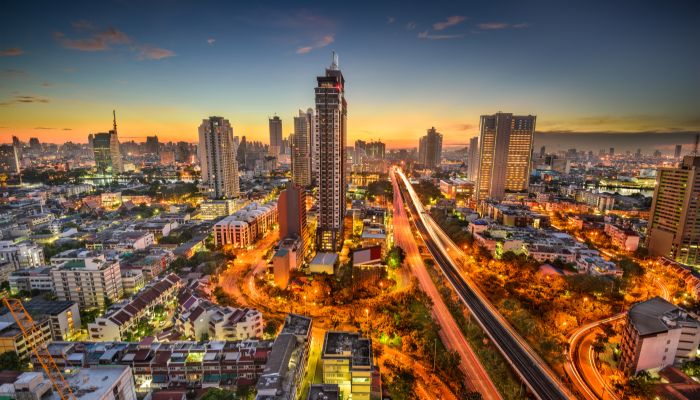Colonies in Punjab need the attention of urban planning, The state of Punjab is grappling with an alarming rise in unauthorized colonies due to weak laws and lax enforcement. The crisis of planned urban development for housing has deepened, leading to the haphazard growth of unapproved settlements, devoid of necessary infrastructure and amenities.
The challenges faced by both authorized and unauthorized colony plot holders, highlight the urgent need for stringent regulations and effective enforcement.
The Growth of Unauthorized Colonies
The unchecked growth of unauthorized colonies on private agricultural land without proper approvals and land use planning, has been a persistent issue for the past three decades. These settlements lack essential civic amenities and often feature narrow streets, creating living conditions far from ideal. So Colonies in Punjab need the attention of urban planning that develope by community planners if the planning measurment not adopte so this challange enhance with the passage of time
Moreover, authorized colonies face their own set of challenges, as developers swiftly sell plots at inflated prices, failing to deliver the promised development and approvals.
Legislative Efforts to Regulate Urban Development
In 1995, the Punjab Government enacted the Punjab Apartment and Property Regulation Act (PAPRA) to regulate unplanned colonization and prevent embezzlement. The act provided rules for registering and licensing private colonizers, outlining their responsibilities and the procedures for handing over colonies to local authorities.
Additionally, the Punjab Urban Planning and Development Authority (PUDA) was established to facilitate planned urban development and enforce regulations.
Escalating Numbers and Regulatory Challenges
Despite legislative efforts, the proliferation of unauthorized colonies continues unabated. The number of illegal colonies has surged from 5340 in 2013 to an estimated 15,000, vastly outnumbering the authorized colonies, which stand at approximately 500.
The crisis is two-fold: ensuring timely development in authorized colonies and curbing the growth of unauthorized ones, necessitating stringent enforcement and a crackdown on illegal activities.
Regulatory Gaps and Compliance Issues
Many colonizers opt for unauthorized colonies to avoid the bureaucratic paperwork, fees, and legal responsibilities associated with establishing authorized colonies.
This leads to a significant price disparity between plots in authorized and unauthorized colonies, enticing buyers to choose the latter. The soft approach of law enforcement further emboldens colonizers to establish illegal settlements, perpetuating the problem.
Conclusion
Addressing the proliferation of unauthorized colonies requires a comprehensive approach as well as Colonies in Punjab need the attention of urban planning. Strict enforcement of existing laws, closing regulatory gaps, and incentivizing compliance are crucial steps to curb unauthorized growth. Simultaneously, focusing on the planned development of authorized colonies and prioritizing the provision of civic amenities will ensure a more sustainable and regulated urban landscape in the future
What are unauthorized colonies, and why are they a concern in Punjab?
Unauthorized colonies are residential settlements established without proper approvals, often on agricultural land. In Punjab, their unregulated growth poses a significant challenge due to inadequate infrastructure, lack of civic amenities, and violation of land use laws
How has the crisis of planned urban development escalated in Punjab?
The crisis has worsened due to the exponential demand for housing, rapid urbanization, and ineffective laws. The proliferation of unauthorized colonies has outpaced the growth of authorized ones, highlighting the urgency to address this issue
What legislative measures have been taken to regulate urban development in Punjab?
The Punjab Apartment and Property Regulation Act (PAPRA) was enacted in 1995 to regulate and authorize private colonizers, ensuring planned development. Additionally, the Punjab Urban Planning and Development Authority (PUDA) was established to oversee urban development in the state
What is the current scenario of authorized and unauthorized colonies in Punjab?
There is an alarming disparity, with unauthorized colonies vastly outnumbering authorized ones. The estimated number of unauthorized colonies has surged, revealing the urgency to enforce regulations and prevent further unauthorized growth.
What challenges do plot holders in authorized and unauthorized colonies face?
Plot holders in authorized colonies face delays in development despite higher plot prices, while those in unauthorized colonies lack essential amenities. Both parties endure regulatory challenges, underlining the need for a streamlined and efficient system.
Why do some colonizers prefer establishing unauthorized colonies?
Colonizers opt for unauthorized colonies due to the evasion of paperwork, fees, and legal responsibilities associated with authorized colonies. The price advantage further encourages this choice, emphasizing the necessity of stringent enforcement and regulatory reforms
What steps can be taken to mitigate the issue of unauthorized colonies in Punjab?
Effective enforcement of existing laws, closing regulatory gaps, incentivizing compliance, and ensuring timely development in authorized colonies are vital steps. Additionally, focusing on providing civic amenities to residents can lead to a more regulated and sustainable urban landscape





